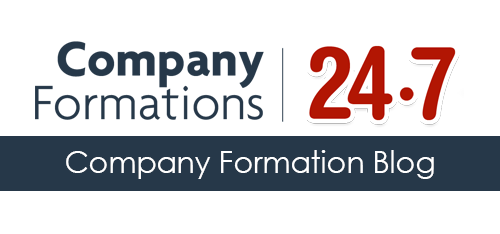When a limited company has been formed after providing the relevant documents to Companies House, they can start earning money. As with any company formation process, knowing about the many financial obligations which have to be met is imperative because there are many different taxes which a limited company has to pay.
Corporation Tax has to be paid by a limited company
Both public and private limited companies have to pay Corporation Tax. The actual figure which has to be paid for Corporation Tax differs from one to another because it is calculated on the total taxable profits a limited company makes in a financial year. Any money which is received is taken into consideration. Even if a limited company generates profits which are in a currency that they do not normally accept, i.e. a UK company being paid in Malaysian ringgits, it will still be considered.
The rate of Corporation Tax which a limited company has to pay can be calculated by a limited company. However, the number of hours which are required in order to work out this figure can be considerable. Many limited companies simply do not have enough free time in order to work out how much Corporation Tax needs to be paid and therefore seek assistance from a Corporation Tax agent in order to help them. When a Corporation Tax agent has been hired, HMRC (Her Majesty’s Revenue and Customs) should be notified as soon as possible.
Corporation Tax rates
There are two separate rates which are used in Corporation Tax. ‘Upper Rate’ is otherwise known as the ‘full rate’ whereas the ‘Lower Rate’ is applied to limited companies which report lower profit margins. For ‘Lower Rate’, 20% is applied during the 2012/2013 financial year and is liable for limited companies whose profits do not exceed £300,000. The ‘Upper Rate’ is applied at a rate of 24% and is charged when profits are more than £1.5million. Businesses can claim for ‘Marginal Relief’ if their profit margins are between £300,000 and £1.5million where a slightly lower Corporation Tax rate is applied than what is stipulated under the ‘Upper Rate’.
Corporation Tax is normally paid by a limited company within twelve months of their accounting period ending. This is referred to as a ‘statutory filing date’ and penalties are imposed on a limited company if they fail to pay their Corporation Tax during this period.
PAYE tax also needs to be paid by limited companies
Unlike a Sole Trader business which only employs one person, a limited company will have to establish their own PAYE system because they will need to pay the correct amount of tax on staff wages. PAYE is the standalone system which enables employers to pay HMRC the right amount of tax and National Insurance Contributions (NIC’s). The amount of tax which is deducted from employee’s wages depends on how much they earn. Here is a breakdown which details each pay bracket:
Between £1 and £34,370 20%
Between £34,371 and £150,000 40%
£150,000 and more 50%
However, income tax is only deducted from employee’s wages when the annual National Insurance Lower Earnings Limit of £5,564 has been reached. If an employee earns less than this, they will not have to pay income tax. Class 1 NIC’s are also deducted from employee’s wages. A flat rate of 12% is applied before the Earning Threshold is surpassed. The lower earnings limit for Class 1 NIC’s in the 2012/2013 financial year is £107 whereas the upper earning limit is £817. The exact amount of income tax and NIC’s which is deducted from employee’s wage is calculated by a limited company and not HMRC.
Other taxes which a limited company may have to pay
When profit margins exceed £77,000, a limited company are liable for VAT. HMRC should be notified as soon as a limited company’s profits exceed this figure. A limited company is not only legally required to inform HMRC that they should be VAT registered but it causes less hassle. This is because HMRC will instantly start to consider a limited company as being VAT registered when it is identified that their profit margins have reached £77,000.
If the rate of VAT is not applied to goods and services as soon as they are liable for VAT, a limited company may owe thousands of pounds if they do not notify HMRC straight away. By keeping concise records when VAT is applied to goods and services, a limited company will be able to provide correct figures on a VAT return which typically happens after every three months.
A limited company should know its tax responsibilities
Long before a limited company forms, directors must know about the different taxes and payments which they will have to pay. Therefore, a limited company will not be penalised by HMRC for not paying a particular tax.



